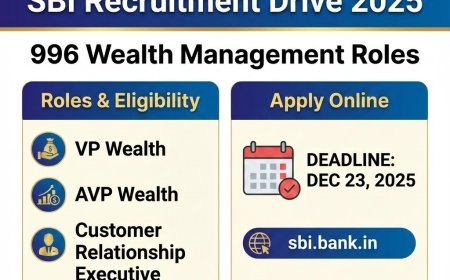NISM Series V A Mutual Fund Distributors Exam Series - 23
NISM Series VA Mutual Fund Distributors Exam Series - 23
Explore Additional Mock Tests Here
Q 1. What distinguishes investing through a mutual fund from investing directly in financial instruments?
a) Higher returns
b) Lower risk
c) Professional way of investing
d) Regulatory oversight
e) None of the above
Q 2. What type of equity scheme predominantly invests in small-cap stocks?
a) Large Cap Fund
b) Mid Cap Fund
c) Small Cap Fund
d) Dividend Yield Fund
e) Focused Fund
Q 3. What legal document governs the operations of a mutual fund trust?
a) Prospectus
b) Investment Management Agreement
c) Custodian Agreement
d) Trust Deed
e) Memorandum of Association
Q 4. What can investors do if they believe the trustees have not fulfilled their obligations?
A) File a lawsuit against the trust
B) File a lawsuit against the AMC
C) File a lawsuit against the trustees for breach of trust
D) Request for a change in AMC's management
E) None of the above
Q 5. How often should the Scheme Information Document (SID) be updated for open-ended and interval schemes?
A) Annually
B) Biannually
C) Quarterly
D) Monthly
E) Biennially
Q 6. Which of the following is NOT part of the risk disclosure requirements for mutual fund schemes?
a) Risk-o-meter
b) Benchmark performance comparison
c) Portfolio disclosure
d) Disclosure of exit load
e) Disclosure of the lock-in period
Q 7. What facilities are provided to mutual fund distributors regarding nomination?
a) They can nominate investors on behalf of the fund
b) They can nominate themselves as beneficiaries
c) They can facilitate nominations for investors
d) They can change the nomination of investors
e) They can refuse to facilitate nominations for investors
Q 8. Who has the option to opt out of charging transaction charges?
a) Investors
b) Mutual fund companies
c) Distributors
d) Stock exchanges
e) None of the above
Q 9. Can the commission payable to distributors of mutual funds be subject to GST?
a) No, commission payable to distributors is exempt from GST
b) Yes, the commission payable to distributors is subject to GST
c) Only institutional investors pay GST on commission
d) GST on commission is deducted from the distributor's earnings
e) GST on commission is paid by mutual fund investors
Q 10. When will a unitholder incur a capital gain?
a) When the selling price is lower than the purchase price
b) When the selling price is higher than the purchase price
c) When both selling and purchase prices are the same
d) When the market is bearish
e) None of the above
Q 11. How does an exit load affect the number of units redeemed in an SWP?
a) It decreases the number of units redeemed
b) It increases the number of units redeemed
c) It does not affect the number of units redeemed
d) It eliminates the need for unit redemption
e) It increases the NAV
Q 12. What documentation is required for third-party payments?
a) Third-Party Declaration form
b) Bank statement or passbook
c) PAN details of the third party
d) All of the above
e) None of the above
Q 13. What is the minimum investment and redemption limit for an STP?
a) Specified by the investor
b) Determined by the fund manager
c) Not applicable as they do not apply to an STP
d) Set by regulatory authorities
e) Varied based on market conditions
Q 14. What method is NOT mentioned as a permissible means for submitting officially verified documents during the online KYC process?
a) eSign mechanism
b) Digi locker
c) Postal mail
d) Electronic signature
e) Submission through email
Q 15. Which option does not involve the distribution of dividends to investors?
a) Income Distribution cum capital withdrawal Pay-out
b) Income Distribution cum capital withdrawal Re-Investment
c) Growth
d) All options involve dividend distribution
e) None of the above
Explore Additional Mock Tests Here



